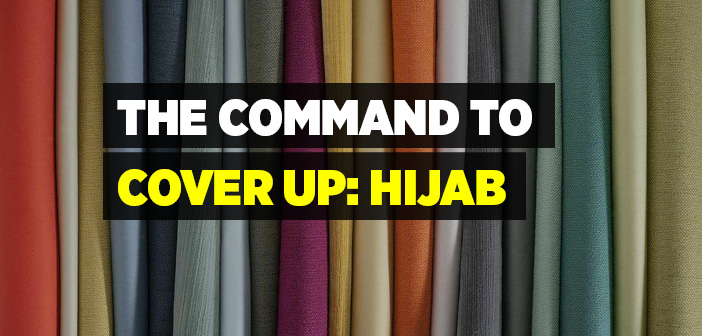What is hijab in islam? What is cover up in islam?
Prior to Islam, Arabs had no notion of hijab, a circumstance which naturally persisted through to the first years of Islam. But judging from the above mentioned gradualness implemented with regard to the banning of alcohol and gambling, it was obvious that this would not last long. The ayah instating hijab was finally revealed, which effectively elevated the status of women and increased their repute by virtue of protecting their honor and dignity. Women were turned into statues of chastity and became endowed with a dignified identity.
On the other hand, the ruling of hijab concerns not only women, but also men. That is, the relevant command incorporates both males and females in its scope, rendering them both accountable. Thus states Allah, glory unto Him:
“Say to the believing men that they cast down their looks and guard their private parts; that is purer for them; surely Allah is Aware of what they do. And say to the believing women that they cast down their looks and guard their private parts and do not display their ornaments except what appears thereof, and let them wear their head-coverings over their bosoms…” (an-Nur, 30-31)
Covering protects the feminine character. Through her hijab, a woman imparts an aura of elegance and grace. Uncovered, then women are ultimately turned into tools of lust that rouse desires of the ego; and that only disparages their character and dignity, undermining the honor of motherhood.
One thing that must be pointed out here is that there is a natural difference between male and female souls, a difference that comes from creation, from the distinct roles determined by the Almighty that therefore have given rise to a difference of nature. The specific manner of covering therefore varies between men and women. Compared to men, women are gifted with a greater charm and attraction. A female who distances herself from hijab and, in a sense, deciphers herself to society, lays ruin to her elegance and graciousness. Her peculiar attribute of motherhood is thereby also dealt a destructive blow of similar proportions. As a measure against all this and by virtue of hijab, her charms have therefore been reserved only to her husband. Between males and females a natural, unchangeable tendency that originates from natural predisposition exists, necessary to perpetuate the succession of generations, which, unless one obeys the command of hijab, could lead to transgressing the bounds of Divine limits and thus bring about a disastrous moral corruption. In fact, one of the gists of the below command of Allah, glory unto Him:
“And go not nigh to fornication…!” (al-Isra, 32) is ‘do not open the doors of fornication through defying the hijab; do not unknowingly lay the groundwork for it!’ This is an absolute ruling. It is of note that Islam commands not so attractive women to cover up just the same. That is, one cannot say, ‘there is no harm in so and so not covering up, for she is not so attractive anyhow’; for hijab aims to safeguard female dignity in general.
Islam, which establishes its rulings compliant with natural human disposition, also takes into regard what is required by masculinity and femininity. The Blessed Prophet -upon him blessings and peace- has therefore condemned men who try to act like women and women who try to act like men.[1] To protect themselves from this peril, women should establish friendships with righteous women; for whoever befriends another, soon becomes like. This is a law of psychology. Once women become innured to sharing the same environment with men, they lose the feminine feelings and those irreplaceable female characteristics.
Imitating the dress sense of the opposite gender has likewise been prohibited. Men who dress like women and women who dress like men, avows the Blessed Prophet -upon him blessings and peace- , will be distant from Divine Compassion.[2] For it is imperative for both genders to preserve their dignities of gender.
Imitating the dress sense of the opposite gender further causes a deficiency of character. The deviancy of choice in clothing, in time, reflects on the person and takes its toll on his/her behavior, and that means the ruin of natural predisposition.
[1] See, Bukhari, Libas, 61.
[2] See, Abu Dawud, Libâs, 28/4098.
Source: Osman Nuri Topbaş, The Prophet Muhammed Mustafa the Elect II, Erkam Publications





